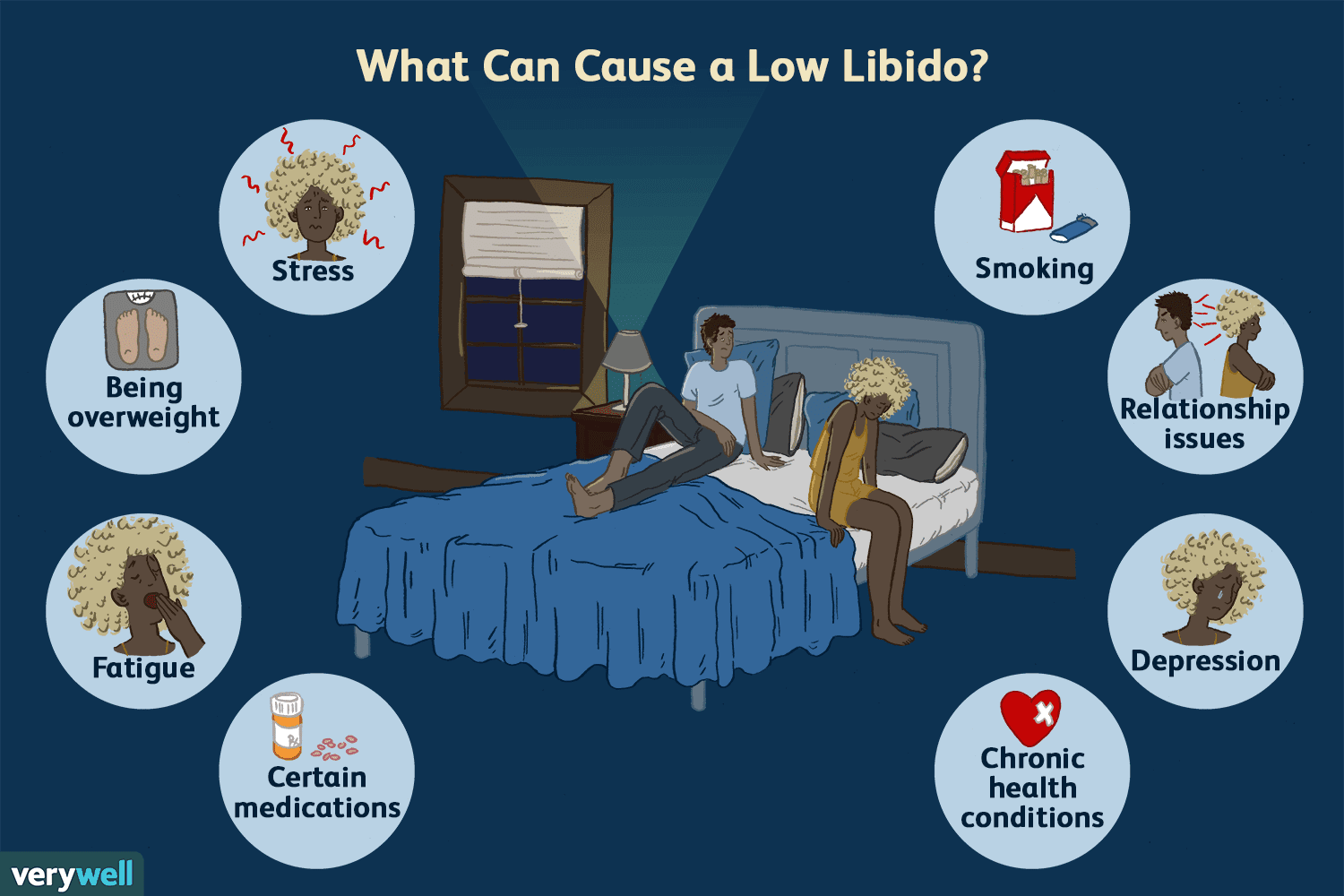
Low libido, or decreased sexual desire, is a common issue that affects both men and women. It can arise from various factors, including hormonal influences, psychological conditions, and lifestyle choices. Understanding the causes of low libido is the first step in addressing it effectively. In this blog, we’ll explore the reasons behind decreased libido and offer practical solutions to help boost sexual desire.
What is Low Libido?
Low libido refers to a reduced interest in sexual activity. It can vary greatly between individuals and can be influenced by physical, emotional, and environmental factors. It is essential to note that fluctuations in libido are normal; however, persistent low libido may signal underlying issues that need to be addressed.
Causes of Low Libido
1. Hormonal Influences
Hormones play a crucial role in regulating sexual desire. Changes in hormone levels can significantly impact libido:
- Testosterone: This hormone is vital for male sexual function. Low testosterone levels can lead to decreased libido in men, often associated with aging, certain medical conditions, or hormonal imbalances.
- Estrogen and Progesterone: In women, hormonal fluctuations due to menstrual cycles, pregnancy, or menopause can influence sexual desire. Low estrogen levels, for instance, can lead to vaginal dryness and discomfort during intercourse, further reducing libido.
- Thyroid Hormones: An underactive or overactive thyroid can also impact sexual desire in both men and women.
2. Psychological Factors
Mental health significantly affects libido. Psychological factors that can contribute to low sexual desire include:
- Stress and Anxiety: Daily pressures from work, family, and life can lead to heightened stress and anxiety, diminishing sexual interest.
- Depression: This mental health condition can sap energy and enthusiasm for sexual activity, leading to decreased libido.
- Relationship Issues: Poor communication, unresolved conflicts, or lack of intimacy with a partner can adversely affect sexual desire.
3. Lifestyle Impacts
Lifestyle choices play a significant role in sexual health and libido:
- Diet and Nutrition: A poor diet lacking essential nutrients can affect overall health and hormone levels. Foods rich in zinc, omega-3 fatty acids, and antioxidants can help boost sexual desire.
- Physical Activity: Regular exercise can improve blood circulation, increase energy levels, and boost mood, all of which can enhance libido. Sedentary lifestyles, on the other hand, can lead to reduced sexual interest.
- Sleep Patterns: Lack of sleep can negatively impact hormone levels and energy levels, leading to decreased libido. Establishing a healthy sleep routine is essential for overall well-being.
4. Medical Conditions
Certain medical conditions can contribute to low libido, including:
- Chronic Illnesses: Conditions such as diabetes, cardiovascular disease, and obesity can affect sexual health and hormone levels.
- Medications: Some medications, including antidepressants, blood pressure medications, and hormonal therapies, can have side effects that lower libido. Always consult a healthcare provider before making any changes to prescribed medications.
Effective Remedies to Boost Libido
If you’re experiencing low libido, there are several effective remedies to consider:
1. Consult a Healthcare Provider
Seek professional advice to determine if underlying medical conditions or hormonal imbalances contribute to your low libido. A healthcare provider can recommend appropriate tests and treatments tailored to your needs.
2. Lifestyle Changes
- Improve Your Diet: Focus on a balanced diet rich in fruits, vegetables, lean proteins, and healthy fats. Consider incorporating aphrodisiac foods like dark chocolate, avocados, and nuts.
- Exercise Regularly: Engage in physical activities you enjoy, whether it’s walking, swimming, or yoga. Aim for at least 30 minutes of exercise most days of the week.
- Prioritize Sleep: Establish a consistent sleep routine and create a restful environment to improve sleep quality.
3. Manage Stress and Mental Health
- Practice Relaxation Techniques: Incorporate mindfulness, meditation, or yoga into your daily routine to help manage stress and anxiety.
- Seek Therapy: Talking to a mental health professional can help address psychological issues that may be affecting your libido.
4. Communicate with Your Partner
Open and honest communication with your partner is essential. Discussing your feelings and concerns can help foster intimacy and connection, improving your sexual desire.
Conclusion
Low libido is a common concern that can be caused by various factors, including hormonal influences, psychological issues, and lifestyle choices. Understanding these causes is the first step towards finding effective solutions. By making informed lifestyle changes, seeking professional help, and communicating openly with your partner, you can boost your libido and enhance your overall sexual health. Remember, you’re not alone in this journey, and support is available.

